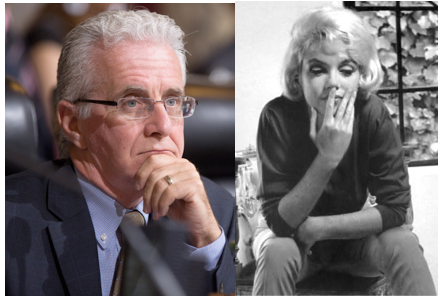CommentsTHIS IS WHAT I KNOW--Residents dissatisfied with Los Angeles Councilman Paul Krekorian’s record with development issues have launched a recall effort to oust the councilman from his representation of the 2nd Council District, which covers Valley Village, North Hollywood, and Studio City. Proponents of the recall effort allege that Krekorian has “demonstrated a marked bias favoring outside business interests over community sensibilities and community requests.”
Krekorian’s critics put the council member on notice last week that they would be sponsoring a recall petition, which is one of the initial steps in the recall process, citing a laundry list of reasons, including changes to zoning approval, exemptions for real estate development projects that conflicted with city and community rules, and opposition to historic designations, as well as failure to respond to concerns about dangerous demolitions.
At the core of the recall effort are development in Valley Village and the lack of preservation of historical properties. Valley Village resident Donna Gooley alleges the recall effort was launched following the demolition of the Hermitage Avenue home where a 17-year old Norma Jean Dougherty (Marilyn Monroe) had lived. Just days prior to a Cultural Heritage Commission hearing, the property was demolished.
The constituents involved in the recall effort place blame on Krekorian for not stepping up in the Hermitage Avenue case, as well as a second case involving the site of Henry’s Taco’s in North Hollywood.
What was Krekorian’s response? He has pointed out that he had captured over 75% of the vote when he won reelection. He made a written statement expressing he holds the confidence of most of his constituents. Ian Thomson from Krekorian’s office addressed the recall by stating, “The councilman has worked very closely and successfully with the community to fight against overdevelopment and mansionization,” fighting the construction of McMansions in Valley Village. A Los Angeles Times endorsement in February of last year cited Krekorian’s work to place more effective limits on the city’s Mansionization Baseline Ordinance.
Just how likely is the recall? Proponents would need to collect over 18,000 signatures or 15% of registered voters in his district. Recall efforts are rare in California. The highest profile recall election occurred in October 2003, when then Governor Gray Davis was recalled and was replaced by Arnold Schwarzenneger. In the past decade, four City Hall politicians and Los Angeles Unified School District board members have been the subject of unsuccessful recall efforts.
While the California Constitution provides citizens with the authority to perform recall elections at the state and local levels, as well as judges of the courts of appeal and trial courts, attempts to recall require fundraising and mobilization to procure signatures. As of Monday, according to City Clerk Wolcott, the proponents of the recall may have missed a filing deadline because documents to being the petition process had not yet been received.
If they were to reach that number, a special election would cost about $1.7 million, per City Clerk Holly Wolcott.
(Beth Cone Kramer is a Los Angeles-based writer and writes for CityWatch.)
-cw
















